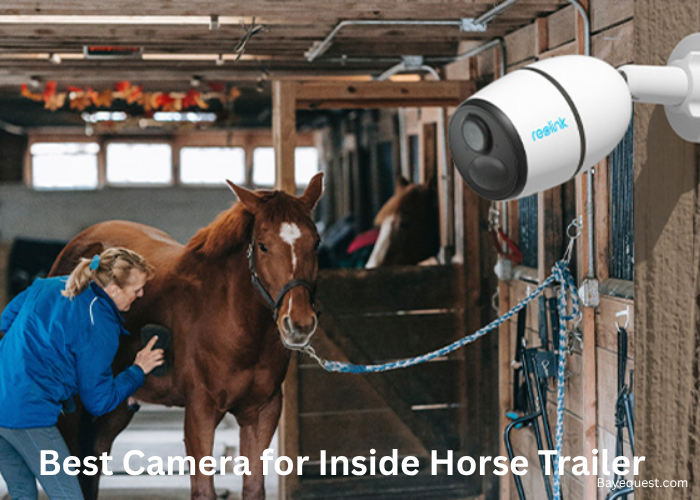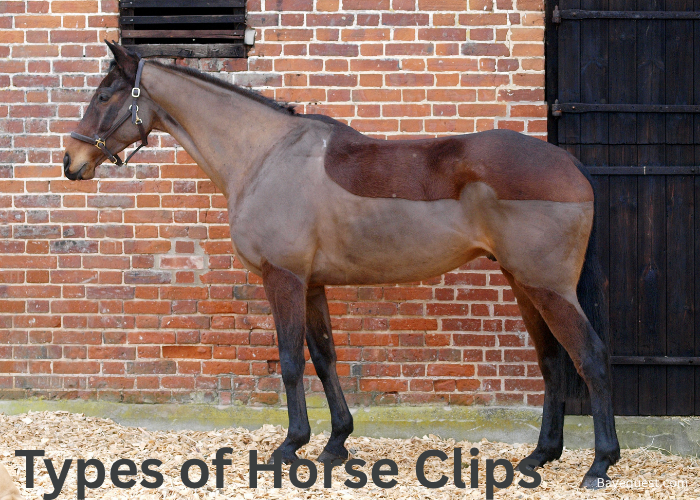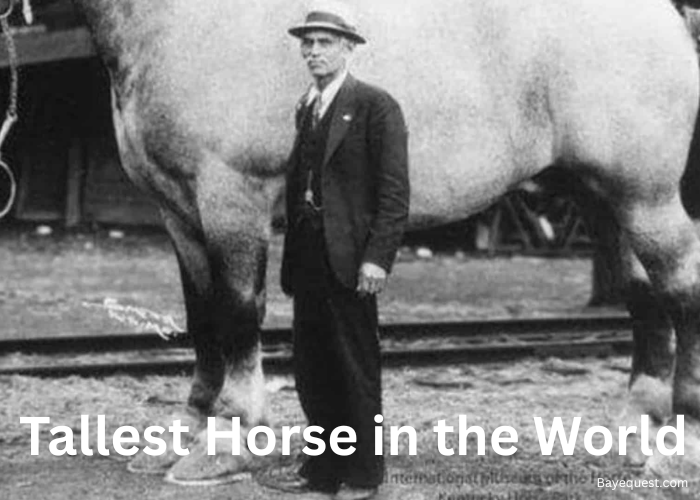Believe it or not, not all horses are created equal for beginners. With decades of equestrian experience, I’ve seen firsthand the difference the right horse can make for a novice rider.
Many aspiring equestrians feel overwhelmed by the vast world of horse breeds and temperaments.
This article is your guide to finding the best horses for beginners. We’ll navigate through the traits that make a horse beginner-friendly, ensuring your journey into horseback riding starts on the right hoof.
What’s a Beginner Horse?
Beginner horses are “lesson” horses suitable for enthusiasts buying a horse for the first time. They are tolerant and patient horses that help the owner or trainer enter the equestrian realm with minimal trouble.
Also, beginner horses are affordable options that allow the owner to test the waters before investing in a more valuable one.
What Makes a Great Beginner Horse?
The “right” beginner horse depends on many factors, including your goals and finances. Nonetheless, a few characteristics define most beginner ponies.
Temperament: The best beginner horses are calm, patient, and forgiving cold-blooded breeds. They aren’t easily spooked if the owner makes a few mistakes. Also, they remain calm during handling and grooming. Avoid hot-blooded breeds with signs of aggression, resistance, or fear.
Personality: The horse’s personality must match the owners. Otherwise, you’ll not enjoy your time with the horse. For instance, not every horse enjoys a daring trail ride. Instead, some prefer a quiet walk. So, find out if your personalities match.
Comfortable riding: Not all horses are ideal for riding. Indeed, it’s forbidden to ride certain breeds. So, research before you go shopping. Moreover, the best riding horses for beginners are calm and comfortable. A bouncy ride may worsen the rider’s fear and anxiety.
Price: Beginner horses shouldn’t necessarily be expensive. It’s fine if you have a big budget. However, few people stick with the first horse for very long. You’ll likely exchange them for a better or more compatible horse in several months or a year. So, it’s sensible to begin with a cheaper horse.
Best Horses for Beginners
We strongly recommend speaking with the breeder or trainer before buying your first horse. You should also have a look at our beginner’s manual guide to buying a horse before you make a purchase.
Nevertheless, the following are the 13 best breeds for beginners.
American Quarter Horse
The American quarter horse is the most popular breed in the US. It’s also the most common breed among beginners.
They are calm-tempered medium-sized horses that grow to 14.3-16 hands and about 1,200 pounds. More importantly, they are strong and extremely versatile horses who excel in English and Western disciplines.
For instance, quarters make exceptional trail riding and ranch horses. Alternatively, you can train your quarter horse for trail jumping.
American Paint Horse
Paint horses are also native to the US. Therefore, they easily adapt to new US owners. Furthermore, they’re about the same build as quarter horses, measuring 14 to 16 hands tall and 950 to 1,200 pounds. This is the optimal height for beginners.
However, what truly sets them apart is their temperament. American paint horses are calm, kind, and forgiving companions, happy to comply with the master’s instructions.
They are rarely aggressive, even when you make a few mistakes.
Missouri Fox Trotter
Still within the average horse size is the Missouri fox trotter. Mature mares stand at 14 hands and 900 pounds, while stallions grow to 16 hands and 1,200 pounds. Muscular legs and powerful shoulders also characterize the fox trotter.
The solid or pinto-colored horse is a friendly, docile companion with a calm temperament. They tolerate beginner missteps and are happy to go on a ride on short notice.
Also, fox trotters are ambling horses with a graceful gait that guarantees a smooth ride.
The Haflinger
If you’re unsure about 14-16 hand horses, the slightly smaller Haflinger would be a great choice for the first few years. Mature females reach 13.2 hands, while stallions mature at 14.3 hands. They weigh 770-1,320 pounds.
Their versatility and sweet personalities are charming. Moreover, Haflingers are hardworking horses that excel in multiple disciplines, from trail riding and carriage to dressage events. They easily carry adult humans despite their smaller build.
Morgan horses
Morgan horses are traditionally bay, black, or chestnut horses measuring 14-15 hands and up to 1,000 pounds. You’ll also note that they’re very compact, with short legs and a muscular build. So, they make excellent riding horses.
They’re great for beginners because they’re calm, composed, and adaptable. They constantly aim to please. Moreover, morgans are workaholic horses that excel on the trail, farm, or at show events. They are also affordable.
Icelandic horses
Are you worried the local terrain may take a toll on your horse? If so, a four-beat riding horse makes the most sense, and the Icelandic horse is the perfect choice for beginners.
Four-beat gaited horses are extremely comfortable even in challenging terrain because each foot hits the ground at a different time.
Besides the majestic gait, Icelandic horses are intelligent, medium-sized equines. They are also affordable and low-maintenance.
Read: How do you Breed Horses?
Appaloosa horses
Novices sometimes confuse Appaloosa and paint horses. But they’re different. While both are heavily patterned, Appaloosas are mottled or spotted, while paint horses are pinto horses with large, irregular patterns.
Unsurprisingly, the appaloosa is just as beginner-friendly as the paint horse. Indeed, Appaloosas are more willful than paint horses, making them better companions and easier to train.
You can use them for farm or ranch work. However, many owners use Appaloosas for trail riding.
Welsh ponies
Consider the Welsh pony if you’re interested in a pet rather than a riding horse. Though strong, Welsh ponies aren’t large enough for adult riders. Also, they’re not energetic enough for long travels or difficult terrain.
On the flip side, Welsh ponies are among the friendliest horses, making them ideal for beginners and kids. Moreover, they’re adorable and very disciplined. So, they make the perfect family mount.
Paso Fino
An athletic breed with a strong, compact body, the Paso Fino is another great choice when getting started with horses. First, they are gorgeous horses with long, flowing manes. You’ll also appreciate their convex heads and clean legs.
But more importantly, Paso Finos are gaited horses, ensuring smooth, comfortable movements ideal for beginners. The docile temperament is another attractive factor. But be warned that it’s a forward-riding breed. So, you must be brave.
Friesian horse
Friesians are among the most desirable horses. Though a little taller and heavier than the average horse, they are calm, patient, and possess a highly agreeable personality. Furthermore, Friesians are beautiful silky-black horses that radiate in the sun.
The Friesian horse primarily excels in riding tasks. However, you can train them for other disciplines, including dressage events and flight farm work. But be warned that Friesian horses don’t come cheap.
Shetland Pony
Families looking for a companion for their kids should also consider the Shetland pony. It’s among the smallest horse breeds in the world, measuring just 7.0 hands, though a few may reach 11.2 hands. Hence, they’re perfect for young children.
However, Shetlands are warm ponies that love playing with their masters. Moreover, they’re excited to head out for a ride or a drive. But their small size means only young kids should be allowed on the pony’s back.
Percheron horses
Percherons are draft horses, among the biggest horses in the world. A few grow to 19 hands tall and up to 2,100 pounds.
So, they can be a little intimidating if it’s your first time handling horses. Nonetheless, they are calm, gentle giants that easily get along with people.
However, be warned that Percheron horses eat a lot. For example, the heaviest consume as much as 50 pounds of hay daily. So, they’re a little expensive to keep.
Find out how much Percheron horses cost in our comprehensive guide.
Clydesdales
The Clydesdale is one of the strongest draft horses. Though shorter than other draft horses, a mature Clydesdale pulls 8,000 pounds easily. Consequently, the Clydesdale is a great choice for farm work and carriage duties.
Yet, these large horses are calm and gentle. They don’t throw tantrums when you slip during climbing or pull the reigns too tight. In addition, Clydesdales offer comfortable rides and can be easily trained in multiple disciplines.
Read: Can Horses Go Downstairs?
Horses to Avoid as a Beginner
Generally, beginners should avoid fiery, hot-tempered horses for a trouble-free learning process. It’s also wise to avoid expensive horses and high-maintenance breeds. To this end, we advise against the following breeds;
- Arabian horses
- Thoroughbreds (Read also: Thoroughbred Horse Price.)
- Shires
- Faroese horses
- Brumbies
Horse Bonding Tips for Beginners
The next step after finding the right breed is forging a strong bond with your horse for mutual benefit. Consider the following tips;
- Prioritize groundwork exercises: Groundwork exercises are performed with the horse when you’re on the ground rather than on their back. They establish boundaries by teaching the horse to look up to you as their leader and to obey your commands.
- Be assertive and consistent: Horses are herd animals that subscribe to a pecking order with an alpha at the top who makes the rules for the rest of the herd. Therefore, as the owner, you’re a member of the herd and leader of the group. So, they expect you to show authority and provide direction.
- Learn the horse’s physical cues: Though horses can’t speak, they can tell their stories using physical cues. For instance, a horse spooks, dances, and snorts when they’re anxious. Learn to respond to these cues promptly.
- Set aside play time: Many horse owners confuse training with playing. But not the horses. They can differentiate the two. So, set aside a few hours every week to play together. Hide-and-seek, ball games, and dress-up games are some of the best options.
- Mind your emotional state: Horses are highly intelligent animals that read the room quickly and mirror the master’s energy. So, work on your mood before visiting the barn. A positive, inviting mood guarantees a great time together.
- The importance of grooming: Watch horses closely when in a heard. You’ll notice that they take turns scratching each other. It’s both a grooming tactic and a bonding mechanism. Wise owners replicate this using a gentle brush to forge a stronger bond with their horses.
- Spend more quality time together: Horses spend the entire day with the herd in their natural habits. They even sleep together for added security. Therefore, they’re happiest and feel most at home when you spend more time with them. Otherwise, they begin to feel like intruders and may seek a way out.
FAQs
Which is the Most Loyal Horse Breed?
Experienced owners and trainers consider Morgan horses the most loyal breed. They are extremely friendly and form a strong bond with humans. Moreover, Morgans are intelligent horses that follow instructions easily.
Which is the Most Aggressive Horse?
Hot-blooded breeds, specifically Barbs, Arabians, and Akhal Tekes, are the most aggressive horses. Though athletic, quick, and intelligent, these horses are spirited, hot-tempered, and occasionally spooky. For instance, Arabian horses can become aggressive due to mistreatment. Thankfully, they’re among the most intelligent horses.
Which Horse is Hardest to Ride?
Thoroughbreds and Arabian horses are the hardest to ride due to their sensitivity and high energy. They aren’t as forgiving as other horse breed. So, they may become aggressive if they sense mistreatment. Also, the horses pick up bad habits faster. But this doesn’t mean they can’t learn.
Can a Beginner Train a Horse?
Unfortunately, no. Though horse training is fun, it can also be dangerous for beginners. For instance, younger horses are extremely unpredictable, while older ones may be aggressive. So, the trainer must be knowledgeable and skilled in their work. Furthermore, timing is critical, and that mainly comes with experience.
Which One is Your Top Pick?
Not all horses are the same. Though you can form a strong and affectionate bond with any, including Broncos and ferals, some breeds are more beginner-friendly than others.
The best options if you’re shopping for your first horse are the American quarter horse, the paint horse, and the Missouri Fox Trotter. Meanwhile, avoid Arabians, Shires, and Thoroughbreds.
Also, find out the difference between Broncos and Mustangs in our next guide.








